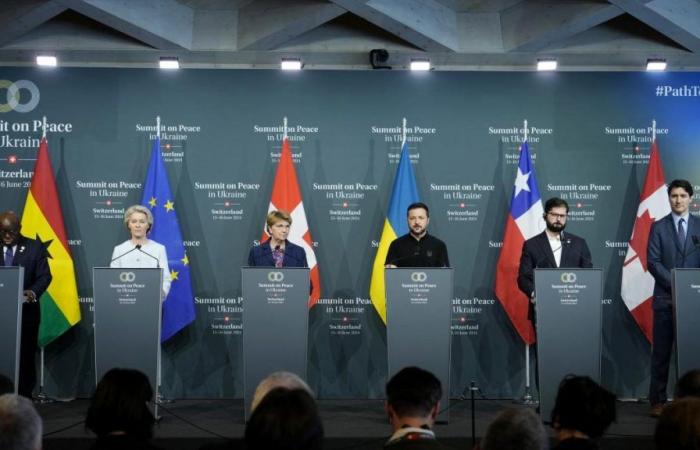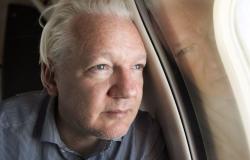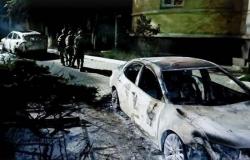The Ukraine Peace Summit, which brought together in Switzerland nearly 60 world leaders and representatives of some ninety governments, ended this Sunday with a joint declaration calling for nuclear and maritime transit security.
“We believe that achieving peace requires the involvement and dialogue between all parties”said the document consulted by international news agencies.
Plenary session of the Ukraine Peace Summit, in the luxurious tourist resort of Burgenstock.
Photo:AFP
What the final declaration of the Ukraine Peace Summit says
The document includes topics around which it could be assumed that there would be consensus, Because while participants agree that the war in Ukraine must end, not everyone thinks the same about how to get to that point.
While Europeans feel directly threatened by this conflict and form a bloc against Russia, Countries from other regions have dared to talk that both sides will have to make concessions, which both kyiv and Moscow currently reject.
On the nuclear issue, leaders point out that any use of nuclear energy must be safe and take into account environmental considerations, and that any threat of use of nuclear weapons is absolutely unacceptable.
The other major issue addressed in the declaration is food security, dependent on uninterrupted production and supply of products.for which it is essential to guarantee the safety of commercial navigation in the Black Sea, as well as access to its ports and those of the Sea of Azov.
“Attacks on merchant ships in ports or along routes, as well as against ports or civilian port infrastructure, are unacceptable,” supports the statement.
Heads of State at the plenary session of the Ukraine Peace Summit.
Photo:AFP
The third and last point of the declaration is humanitarian in scope and includes a call for the release of all prisoners of war through a full swap operation between those held by Russia and Ukraine, respectively.
Twelve leading developing world countries and Russia’s partners in certain forums declined to sign the document. Among these countries that did not sign the declaration are Brazil, India and South Africa – which are part, along with Russia and China, of the group of emerging economies, known as the BRICS-, in addition to Mexico.
Armenia, Bahrain, Indonesia, Libya, Saudi Arabia, Thailand and the United Arab Emirates also did not join the final declaration, while 80 countries did sign the document, including those of the European Union, the United States, Japan, Argentina, Chile and Ecuador.
At the end of the second leaders’ plenary session, held this Sunday, Ukrainian President Volodimir Zelensky thanked the delegations for their participation and that they have understood that “we are all interested in the fact that there is no danger from nuclear plants and other atomic facilities.”
“I am grateful that the participants in this conference understood this and the need to restore full security at the Zaporizhzhia plant, captured by Russia”he added.
“I also thank each of you for supporting us in our efforts to ensure safe navigation and preserve the free flow of food.”highlighted the Ukrainian president.
The President of Ukraine, Volodymyr Zelensky, speaks at the closing press conference of the Peace Summit in Ukraine.
Photo:AFP
“I want to emphasize that food security is vital, not just for countries in the Global South, but literally for every country in the world. “Any disruption in food markets is a direct path to the chaos that Russia wants,” Zelensky said.
The President of Ukraine also said that it was agreed that the deliberations will continue at a more technical level in different countries that have offered to host them. “This process will mean that progress is being made in the development of a concrete peace plan,” he indicated.
Discussions at a technical level will involve special advisors, who will work on specific ideas to restore security, in particular in the nuclear and food security spheres.
Numerous countries in Europe, the Middle East and Latin America have proposed to organize such meetings, which will be the prelude to the call for a second peace summit. Zelensky said that in this second summit the details of a peace settlement will be presented and that he hopes that this will happen in the coming months and that it will not take years.
List of countries that signed the final declaration of the summit.
Photo:AFP
This is how the working groups were divided at the summit in Switzerland
Leaders and senior officials from more than 90 countries met at a luxurious hotel complex in the Swiss city of Burgenstock, to try to end the largest conflict in Europe since World War II.
The participants were divided this Sunday into three working groups: nuclear security, humanitarian affairs, food security and freedom of navigation in the Black Sea.
The humanitarian affairs session focused on issues related to prisoners of war, civilian detainees, internees and missing persons. He also addressed the repatriation of Ukrainian children, removed by Russia from the partially occupied territories.
Falling agricultural production and exports examined in food security talkswhich had a domino effect throughout the world, since Ukraine was one of the breadbaskets of the planet before the war.
Germany, Brazil, South Korea, Spain, Israel, Kenya, the United Kingdom, Thailand and Turkey were part of the 30 countries in this working group.
Discussions also addressed the destruction of fertile land during war and the ongoing risks posed by mines and unexploded ordnance.
The lack of security of maritime traffic in the Black Sea also contributed to the increase in prices.
Volodymyr Zelensky at the Ukraine peace summit.
Photo:AFP
The third group analyzed the safety of Ukrainian nuclear power plants, especially that of Zaporizhzhia, the largest in Europe, occupied by the Russians. The objective was to reduce the risks of an accident occurring.
Argentina, Australia, France, Indonesia, Italy, Japan, Mexico, Philippines, South Africa and the United States were part of this working group.
“A key question remains: how and when can Russia be included in the process?” questioned the Swiss president, Viola Amherd, in her closing speech.
“We heard it in many of his statements: A lasting solution must involve both parties,” he said, while acknowledging that “the road ahead is long and difficult.”






